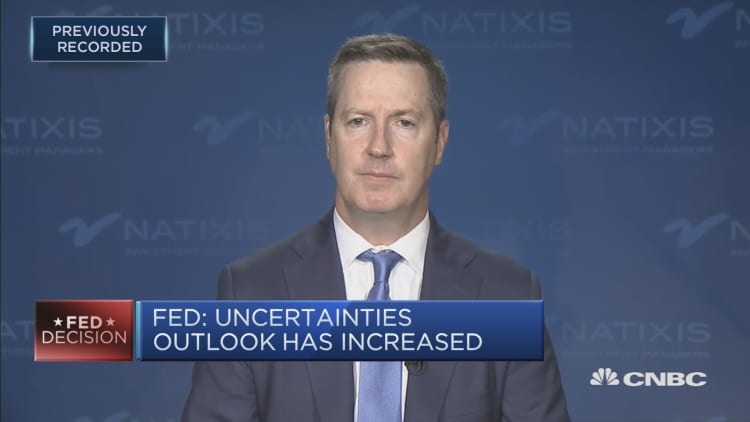As tensions with other countries climb, American investors are sticking close to home.
While 66% of Americans said foreign equities could diversify their portfolios, just 48% of investors hold 1% to 25% allocations to these stocks in their portfolios.
And almost half — 48% — said political tension between the U.S. and other countries is what holds them back from ramping up their foreign exposure.
That is according to a new survey from TD Ameritrade, conducted in February.
The reasons for staying away from overseas investments are varied.
Baby boomers, who grew up when the U.S. represented a greater portion of the world's economy, tend to have fewer foreign holdings. The survey found that 59% of this generation have 1% to 25% foreign exposure.
Millennials, on the other hand, are more open to international investing. The survey found 53% of this younger cohort has 25% to 50% of their holdings in these stocks.
Baby boomers were particularly concerned with foreign countries' instability and equity volatility, while millennials were more likely to complain about a lack of information on foreign equities.

"We've seen over the course of the past few years, but really increasing in momentum, a desire for our clients to exhibit a home-country bias in terms of their investing," said Keith Denerstein, director of investment product and guidance at TD Ameritrade.
"There are advantages to focusing domestically, focusing globally and ultimately we want the client or the investors to be the ones to decide," Denerstein said.
TD Ameritrade is launching a new product next month within its personalized portfolios business, which lets clients get 100% exposure to U.S.-based investments. The investment minimum for that service is $250,000.
But that won't stop the firm's other clients, including those in its robo-advisor service, which has a $5,000 minimum, from heavily weighting their holdings toward domestic equities if they want to, Denerstein said.
"If it's their preference, we certainly want to be able to cater to it," Denerstein said.
More from Personal Finance:
Bernie Sanders proposes forgiving $1.6 trillion in student debt
You won't believe remote jobs with salaries topping $100,000
Why Ted Cruz may be holding up retirement bill in Senate
Financial advisor Scott Hanson, co-founder of Allworth Financial, said his firm and investors are leaning more toward domestic holdings, given U.S. domination of many markets over the past decade.
"People just don't want as much foreign stocks than they used to," Hanson said, citing issues in Europe and slower growth in China. "I think a lot of people are questioning what's the point of taking that risk."
Avoid individual stocks
Hanson's clients typically have a 15% to 20% allocation to international stocks, including emerging markets.
"We clearly think it's important that investors still have an international exposure in their portfolios, but nowhere near 35% to 40% that some were advocating 10 or 15 years ago," Hanson said.
The average investor can access foreign stocks through index funds or exchange-traded funds. Hanson said he discourages individuals from buying specific country index funds because they tend to be speculative in nature.
While investors can buy stock in individual companies listed on foreign exchanges, Hanson said he generally discourages that because of the risk of underperforming index funds. "I don't think it's a very wise strategy to buy individual securities," he said.
TD Ameritade's February survey involved 1,006 adults who had at least $10,000 in investable assets.


